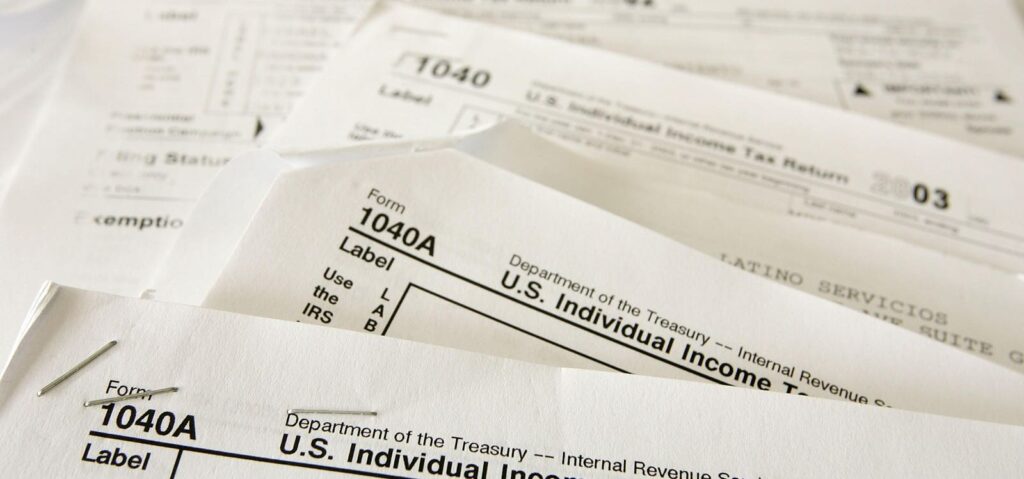Crypto Tax Planning Topics That Investors Should Remember

Crypto tax planning should always be a priority
Getty Images
As 2023 enters the last stretch crypto investors are facing a whirlwind of activity that can be a combination of exciting, exhausting, and financially important. The FTX trial was a publicity packed event, featuring testimony from virtually all of the highest ranking employees, Samuel Bankman-Fried himself, and multiple expert witnesses. Rehashing the spectacular collapse of FTX as well as the multiple allegations leveled against Bankman-Fried has done nothing to reassure investors of the veracity of crypto regulation and legislation. With Bankman-Fried found guilty on all charges, the only remaining speculation is confined to sentencing, set to take place in March 2024.
At the same time the wider cryptoasset landscape has continued to move ahead, with HSBCHBA being the latest large TradFi bank to join the tokenization world. Specifically, the bank recently announced an initiative that will allow customers and investors to tokenize physical hold holdings to facilitate trading. In addition, although the AI froth seems to have calmed down since the debut of ChatGPT at the end of 2022, recent announcements have reignited excitement for how blockchain, cryptoassets, and AI firms could work together.
Looming in the background of all this, however, is the upcoming tax season and crypto investors yet again find themselves the topic of conversation and debate. Let’s take a look at a few of the (many) items that crypto investors should keep in mind as tax planning and preparation kick into high gear.
Charitable Gifts
With the recent recovery in the price of bitcoin and other cryptoassets, as well as the fact that 46% of millennials and 21% of Gen-Z own crypto, the reality is that crypto contributions are set to increase. As dozens of institutions adding the ability for individuals to make contributions in cryptoassets, the tax planning of this process will only become more important in the future.
Regarding cryptoassets there is a unique aspect that taxpayers should keep in mind both prior to making the contribution, as well as the tax reporting process. Since cryptoassets are not universally considered to be readily valued property this leaves taxpayers with one other factor to consider. For contributions worth in excess of over $500, the taxpayer must complete and file Form 8283. If the taxpayer is seeking to donate in excess of $5,000 of crypto the taxpayer will either need to undergo an appraisal that fulfills IRS requirements or forgo the charitable contribution.
Reporting Requirements
Setting aside for the moment some of the looming tax reporting changes that are coming in forms of broker reporting and the like, even relatively straight-forward crypto trading and investing can lead to a flurry of tax form requirements. When a taxpayer disposes of crypto holdings by trading, exchanging, or trading these cryptoassets these transactions and the associated profits/losses need to be reported on Form 1040, Schedule D. In addition, if there are discrepancies that need to be reconciled between Form 1099-B (sent to investors from exchanges and trading platforms) and Schedule D, this might require the filing of Form 8949.
This is not to mention the IRS actively seeking more information from taxpayers via asking about crypto activity on page 1 of the 1040, as well as the potential that certain NFTs will be taxed at the higher collectible tax rate versus capital gains or as ordinary income events. In addition, the IRS has made the position it is taking very clear. On top of the projected $28 billion in revenue that will be collected linked to crypto taxes, the IRS continues to highlight the actions being taken to ensure more crypto compliance.
The IRS Is Focused On Crypto
The IRS, as is its purview, seeks to ensure that all U.S. taxpayers comply fully with existing tax laws, but there are certain areas where the IRS prioritizes enforcement and collection actions. Cash-only businesses, high-net work individuals, and numerous other economic areas have traditionally come under greater than normal scrutiny by the IRS. Cryptoassets, it should come as no surprise, continues to occupy a prominent place in the minds of IRS agents and leadership.
Specifically, the recently launched Virtual Currency Compliance Campaign is set to continue and potentially increase enforcement actions after an initial review showed that 75% of U.S. taxpayers were non-compliant with regards to crypto reporting. On top of the efforts aimed at increasing U.S. taxpayer compliance regarding domestic activities, the IRS has also identified hundreds of possible FBAR non-filers with an average balance of $1.4 million.
No matter which way crypto investors look at the situation, the IRS is set to maintain and increase crypto compliance efforts going forward.
Tax preparation and planning might not be thought of as the most exciting part of the crypto space, but it is essential for crypto investors to continue making this a priority.
Follow me on Twitter or LinkedIn. Check out some of my other work here.
I am a professor at the City University of New York – Lehman College. I serve on the Advisory Board of the Wall Street Blockchain Alliance, where I chair the Accounting Work Group. I am also the chairperson of the NJCPA’s Emerging Technologies Interest Group (#NJCPATech). I sit on the Advisory Board of Gilded, a TechStars ’19 company and AICPA-CPA.com startup accelerator participant. I was a Visiting Research Fellow at the American Institute for Economic Research during 2019.
Read MoreRead Less
Source link
#Crypto #Tax #Planning #Topics #Investors #Remember




